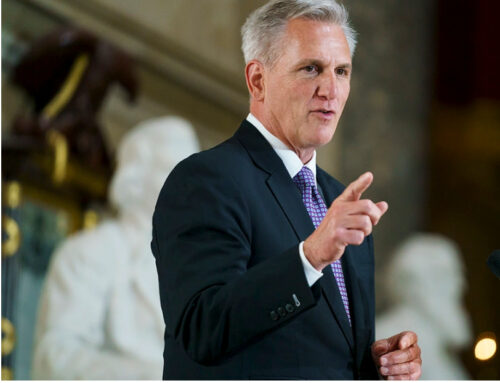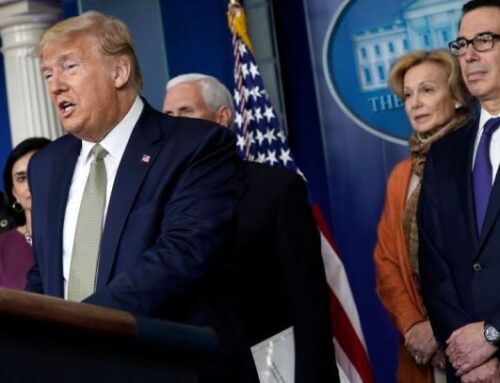Last week Congress — faced with an impending snow storm and a desire to get home for the Presidents Day holiday — hastily passed legislation permitting the federal government to continue to borrow funds through March 15, 2015. Coupled with the agreement reached last December to fund the government through September 30, 2015, this action eliminates the prospects of additional fiscal showdowns for at least the remainder of 2014.
While Congress can congratulate itself for keeping the government open and functioning (something it has not always been able to do), the fact is that these actions fail to addresses the fundamental fiscal issues facing the country. In particular, the compromises do not:
- Change the growth of entitlement spending: A new report from the non-partisan Congressional Budget Office makes clear that mandatory spending (spending on entitlements such as Social Security, Medicare, and Medicaid as well as interest payments on the federal debt) continue to compose almost two-thirds of all U.S. spending. The Budget and Economic Outlook: Fiscal Years 2014 to 2024, Congressional Budget Office (Feb 2014). And that percentage will increase as the baby boomers age, the costs of Obamacare begin to accrue, and (at some point) interest rates rise. Indeed, the rate of increase is a considerable concern; the CBO estimates mandatory spending to grow at a rate in excess of seven percent annually – double the projected growth rate of the economy.
- Bring in additional tax revenue or close tax loopholes: Tax reform remains on the agenda, but there has been no groundswell in Congress or encouragement from the Administration to move forward in a serious way.
- Meaningfully reduce the deficit: The compromise did not reduce the near- or intermediate-term federal deficit beyond the sequestration spending cuts approved in 2011.
- Change the trajectory or amount of outstanding federal debt: Outstanding debt continues to climb inexorably as the United States borrows more money each year to cover that year’s deficit. Debt as a percent of GDP does fall for a few years due to the sequestration cuts, but then that measure too rises as the increased entitlement costs kick in. See the CBO report above.
- Replace the bulk of the sequester cuts: The indiscriminate across-the-board cuts to discretionary spending are unpopular with both parties, yet the compromise does little to replace them.
Some believe that the Republican agreement to extend the borrowing authority without a corresponding concession from the Democrats marks the end of the budget battles going forward. That is not my view, however. Although the fiscal battles will be quiescent this year, by the time next year that the debt ceiling has to be raised and the government funded again, a new class of House Republicans – likely fortified by new Tea Party members – presumably will want to take up the cudgel again to fight for fiscal restraint. (Keep an eye out for my upcoming election analysis and predictions in a new white paper.)
Extenders bill: Congress does have one more piece of unfinished fiscal business this year. A number of tax provisions expired at the end of 2013, as they do every year or two unless Congress renews them. An example is the IRA / charitable contribution provision that permits qualifying individuals to make tax-free annual contributions of up to $100,000 from their IRA to charity.
Typically Congress addresses the expiring provisions in an “extenders” bill. The Senate seems eager to take up such a bill, which would extend most of these provisions through 2014 (retroactively to January 1, 2014). But the House would prefer to wait until Congress can consider comprehensive tax reform, as reform is likely to affect each of the expired provisions.
In my view, tax reform is unlikely to occur this year. Once the House acknowledges that, Congress is likely to move the extenders bill later this year. Individuals who hope to take advantage of the IRA / charitable contribution provision in 2014 thus should hold off taking required minimum distributions until later in the year when we know whether the extenders bill will pass.
Andrew H. Friedman is the Principal of The Washington Update LLC and a former senior partner in a Washington, D.C. law firm. He speaks regularly on legislative and regulatory developments and trends affecting investment, insurance, and retirement products. He may be reached at www.TheWashingtonUpdate.com.
Neither the author of this paper, nor any law firm with which the author may be associated, is providing legal or tax advice as to the matters discussed herein. The discussion herein is general in nature and is provided for informational purposes only. There is no guarantee as to its accuracy or completeness. It is not intended as legal or tax advice and individuals may not rely upon it (including for purposes of avoiding tax penalties imposed by the IRS or state and local tax authorities). Individuals should consult their own legal and tax counsel as to matters discussed herein and before entering into any estate planning, trust, investment, retirement, or insurance arrangement.
Copyright Andrew H. Friedman 2014. Reprinted by permission. All rights reserved.














